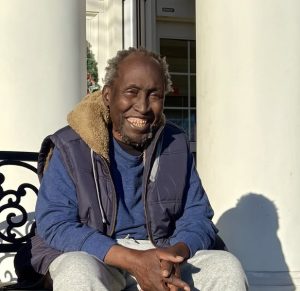Renowned Kenyan author, scholar, and activist Ngũgĩ wa Thiong’o died on Wednesday.
His family announced his passing Wednesday evening, May 28, 2025, saying he “lived a full life, fought a good fight.”
Ngugi is widely regarded as Kenya’s most influential writer and one of Africa’s leading literary voices.
Born in 1938 in Limuru, Kenya, Ngugi has written novels, plays, essays, and memoirs that examine colonialism, post-independence struggles, culture, and language in African societies.
His work spans decades and has been translated into many languages, making him a towering figure in global literature.
He is best known for his bold critique of colonial and postcolonial systems, and for his decision to write in his native Gikuyu language as a political and cultural statement.
Early works and rise to fame
Ngugi first rose to prominence in the 1960s with his debut novel Weep Not, Child (1964). This was the first major novel in English by an East African author.
Set during the Mau Mau uprising in colonial Kenya, it tells the story of a young boy named Njoroge whose dreams of education and prosperity are shattered by the violence and turmoil of British colonial rule.
The novel introduced readers to the themes that would define Ngugi’s career: the clash between tradition and modernity, the effects of colonialism, and the importance of education.
His second novel, The River Between (1965), further explored the tensions within African communities grappling with Western religion and indigenous beliefs.
It focused on two villages divided by their responses to colonial Christianity and the challenge of preserving cultural identity amid change.
The novel’s central character, Waiyaki, tries to unite the opposing sides but faces betrayal and failure, reflecting Ngũgĩ’s early preoccupation with the complexities of leadership and resistance.
Petals of Blood (1977), one of his most powerful novels, exposed the corruption, betrayal, and inequality in post-independence Kenya.
The story follows four characters who are arrested after a mysterious fire in a Kenyan town, and through their stories, Ngũgĩ critiques the betrayal of the ideals of independence by a new elite class. The novel was banned by the Kenyan government shortly after its publication.
Political repression and writing in prison
Ngugi’s political activism came to a head in 1977 when he co-authored the play Ngaahika Ndeenda (I Will Marry When I Want), written in Gikuyu and performed by villagers in Kamirithu.
The play criticised the injustices of Kenyan society and was immensely popular—but it drew the ire of authorities. Ngugi was arrested and detained without trial for a year.
While in prison, he made a significant literary and political shift: he abandoned writing in English and began writing exclusively in Gikuyu.
His prison memoir, Detained: A Writer’s Prison Diary (1981), chronicles his incarceration and the importance of language as a tool of resistance.
Later works and legacy
Following his release and continued government harassment, Ngugi went into exile in the 1980s, living in the United States.
While abroad, he continued to write and publish extensively. His novel Matigari (1986), originally written in Gikuyu, tells the story of a freedom fighter who returns home to find the country still under oppression, even after independence.
The book was also banned in Kenya, and Ngugi remained in exile for many years.
Other notable works include his memoir Dreams in a Time of War (2010), which recounts his childhood during colonial rule, and In the House of the Interpreter (2012), which details his years in a colonial boarding school.
In 2020, he was shortlisted for the International Booker Prize for his novel The Perfect Nine, a mythological retelling of the origin of the Gikuyu people, written originally in Gikuyu and translated into English by Ngugi himself.
Language and cultural identity
Perhaps Ngung’i most enduring legacy lies in his passionate advocacy for African languages. In his critical essays—such as Decolonising the Mind (1986)—he argues that language is a key site of struggle in postcolonial societies.
He believes that African writers must embrace their native tongues to truly represent their people’s realities and resist cultural imperialism.
His contributions to literature have earned him global recognition, numerous awards, and honorary degrees.
Yet, for many readers in Kenya and across Africa, his work remains essential not just for its literary brilliance, but for its courage, truth, and deep love for the continent.
by STAR REPORTER












